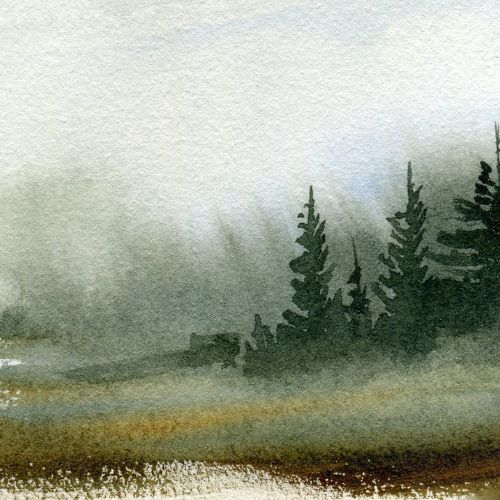5 Surprising Ways Nature Helps Kids Do Better in School
Did you know outdoor play can boost your child’s learning and focus? Discover five science-backed ways nature helps kids excel in school.
Introduction: The Secret Study Hack You’re Probably Overlooking
Want to help your child focus better, remember more, and actually enjoy learning? Here’s a surprising (and completely free) way to do it: get them outside more.
Seriously. Research shows that kids who spend time in nature perform better in school—they focus longer, retain more information, and develop stronger problem-solving skills, all thanks to the magic of the great outdoors.
And the best part? You don’t have to choose between school and outdoor play. The two actually work hand-in-hand. Let’s dive into the five science-backed ways that nature gives kids an academic edge!

1. Nature Supercharges Focus and Attention
Ever tried to get your child to sit still for homework and ended up with a wiggly, distracted mess? Turns out, outdoor play is one of the best ways to reset their ability to focus.
A study from the University of Illinois found that kids with ADHD saw improved concentration levels after spending just 20 minutes in a park—the effects were comparable to taking a dose of medication!
Try This: Next time your child is struggling to concentrate, take a 10-minute “brain break” outside before getting back to work. It makes a huge difference!
2. Outdoor Play Boosts Memory and Learning
Nature isn’t just great for burning off energy—it actually helps kids absorb and retain information better.
Research from the University of Michigan found that people who spent time in nature improved their memory performance by 20% compared to those who stayed indoors.
Why? Movement increases blood flow to the brain, which enhances learning and retention. Plus, being in a stress-free environment helps kids focus better.
Fun Fact: Schools that incorporate outdoor learning have seen higher test scores and better student engagement (Source: American Institutes for Research).
Ready to Explore Even More?
Outdoor adventures start with the right mindset — and simple planning that fits real family life. If you’re ready to make outdoor memories a natural part of your family rhythm, check out my book Natural Escapes: The Ultimate Guide to Planning Stress-Free Family Adventures.
Learn More →3. Hands-On Nature Learning Improves Problem-Solving
Kids don’t just learn from books—they learn from doing. And there’s no better place to build critical thinking and problem-solving skills than in the great outdoors.
A study by the University of Exeter found that children who engage in unstructured outdoor play develop higher-order thinking skills and stronger problem-solving abilities.
Think about it: When kids climb a tree, figure out how to cross a stream, or build a fort, they’re actively solving problems and learning how to think critically. These skills carry over to math, science, and reading comprehension in the classroom.

Try This: Encourage outdoor problem-solving by asking open-ended questions—“How do you think we can cross this log without getting wet?”
4. Nature Lowers Stress (So Kids Can Actually Focus on Learning)
Let’s be real: Kids today deal with a lot of stress. Between school pressures, social expectations, and screen time overload, it’s easy for them to feel overwhelmed. That’s where nature comes in. Studies show that kids who spend time outside have lower stress levels, less anxiety, and better emotional regulation—all of which makes it easier to concentrate in school.
A study from Cornell University found that as little as 10 minutes in a natural setting significantly reduces stress hormones in children.
Try This: After school, let kids run around outside before starting homework. It’s a game-changer for stress relief!
5. Outdoor Play Improves Communication and Social Skills
One of the most underrated benefits of outdoor play? It makes kids better communicators.
Research from the University of Cambridge found that children who engage in free outdoor play develop stronger language skills and social confidence than those who primarily play indoors.
Why? When kids play outside together, they have to negotiate, problem-solve, and collaborate—without the structure of organized activities. This helps them develop stronger communication, teamwork, and leadership skills, which are just as important as academics.

How to Add More Outdoor Time to Your Child’s Day
Even if your child has a full schedule, there are simple ways to sneak in outdoor learning:
- Move study time outside – Do spelling words on the driveway with chalk or read outside.
- Take active breaks – Let kids play outside between schoolwork sessions.
- Turn nature into a classroom – Try a nature scavenger hunt that teaches science concepts!
- Walk and talk – Discuss school topics while walking through the park.
- Make it fun! – Outdoor play should be a reward, not a chore.
Final Thoughts: Learning Happens Everywhere (Especially Outside!)
Want to help your child focus better, learn faster, and actually enjoy school? The solution might be as simple as opening the door.
Nature isn’t just a break from learning—it’s a powerful tool for better learning. And the best part? Nature is free, fun, and easy to integrate into daily life.
You only get one chance to live this life with your kids.
Let’s make it count — outside.
Sign up to get access to the Trailhead Collection — our free library of outdoor printables, planning tools, and family adventure guides. You’ll get instant access to our most-loved resources — no pressure, just inspiration.
From seasonal activity calendars to nature-based safety kits, it’s all designed to help your family get outdoors more often — and with less stress.

Discover Natural Escapes
If you’re ready for a full, step-by-step system to build an outdoor family life you love, my book is for you.
Inside, you’ll find practical planning strategies, age-specific activity ideas, and real-world advice for raising adventurous, confident kids — even if you’re just getting started.
Related Posts
- Why Kids Need More Time in Nature
- How to Make Outdoor Time a Habit(That Actually Sticks)
- How to Start Hiking with Young Kids (and Actually Have Fun)
Want to save this for later? Pin the image below to one of your boards on Pinterest!

Looking to raise more resilient adventurers?
This article is part of our Outdoor Parenting Mindset Series — a collection of calm, confidence-building tools to help you raise capable kids and create a family culture rooted in nature.
← Return to Outdoor Mindset Hub | ← Return to Outdoor Adventure Launchpad


